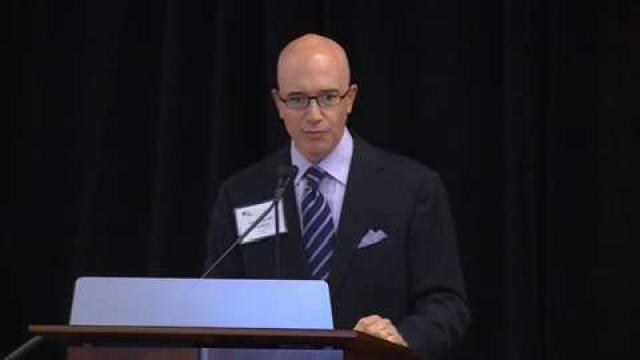Health and Fitness Claims
Americans spend billions of dollars every year on supplements, foods and devices in hopes of improving their health and fitness. But not all of these products live up to the advertising claims that they can help people lose weight, combat disease, and improve their cognitive abilities. The Federal Trade Commission combats this type of deceptive advertising in coordination with the Food and Drug Administration. The FTC also seeks the expertise of other government authorities, including the National Institutes of Health.
With regard to the supplement industry, which reported an estimated $25 billion in sales in 2009 – a six percent increase over the previous year – market analysts suggest that the downturn in the economy has led to increased spending on these products, as consumers attempt to manage their own healthcare and avoid expensive doctor visits and prescription medications. All too often, the health claims made for these products are false or unproven. Over the last decade, the FTC has filed one hundred and twenty cases challenging health claims made for supplements. Meanwhile, in recent years there has been a trend in food advertising toward making unproven claims that eating certain foods can improve health and even reduce the risk of serious illnesses such as prostate cancer and heart disease.
- Stem Cell Institute of America, LLC ( )
- Benefytt Technologies, et al., FTC v. ( )
- Nerium International, LLC ( )
- American Screening, LLC ( )
- Dalal A. Akoury d/b/a AWAREmed, et al., U.S. v. ( )
- doTERRA - Wong ( )
- doTERRA - Busch ( )
- doTERRA - Bacot ( )
- ZyCal Bioceuticals Healthcare Company, Inc. ( )
- QYK Brands LLC d/b/a Glowwy ( )
- ALG-Health LLC, et al., U.S. v. ( )
- Vision Path, Inc., d/b/a Hubble Contacts, U.S. v. ( )
- Kushly Industries LLC, In the Matter of ( )
- Health Research Laboratories, LLC, In the Matter of ( )
- AH Media Group, LLC ( )
- Gravity Defyer, FTC v. ( )
- R360, FTC v. ( )
- Jason Cardiff (Redwood Scientific Technologies, Inc.) ( )
- Health Research Laboratories, LLC ( )
- B4B Corp. ( )
- FTC Warns Two Trade Associations and a Dozen Influencers About Social Media Posts Promoting Consumption of Aspartame or Sugar ( )
- FTC Action Leads to Lifetime Ban for Skin Cream Marketer Who Charged Consumers Millions in Junk Fees ( )
- FTC Acts to Stop Owner, Marketers of ‘Smoke Away’ from Deceptively Claiming Products Enable Users to Quit Smoking ( )
- At FTC’s Request, Florida District Court Permanently Bars Deceptive COVID-19 PPE Marketer from Selling Any Protective Goods or Services to Consumers ( )
- FTC Sues Medical Clinic and its Owner for False or Unsubstantiated Claims its Treatment Could Cure Addiction and Other Diseases ( )
- FTC Takes Action Against doTERRA Distributors for False COVID-19 Health Claims ( )
- FTC Announces New Business Guidance for Marketers and Sellers of Health Products ( )
- Federal Trade Commission Returning Almost $21,000 to Consumers Nationwide Who Bought Deceptively Marketed CBD Products from Kushly Industries ( )
- FTC Action Against Benefytt Results in $100 Million in Refunds for Consumers Tricked into Sham Health Plans and Charged Exorbitant Junk Fees ( )
- Federal Trade Commission Scores Two Victories in Separate Actions Against Companies Who Failed to Deliver COVID Personal Protection Equipment During Early Days of the Pandemic ( )
- FTC Finalizes Order Banning Deceptive Marketing by Supplement Seller ( )
- Federal Trade Commission Sues Gravity Defyer and its Owner for Violating FTC Order and Making Baseless Pain-Relief Claims to Market Footwear ( )
- Federal Court Rules in Favor of FTC, Halting Illegal Tactics Used to Promote Smoking Cessation, Weight-Loss, and Sexual-Performance Aids ( )
- FTC Proposed Order Stops Marketers from Continuing to Promote Supplements Using Baseless Health Claims ( )
- FTC, DOJ, and FDA Take Action to Stop Marketer of Herbal Tea from Making False COVID-19 Treatment Claims ( )
- FTC Returns More Than $930,000 To Consumers Who Bought Teami’s Deceptively Advertised Teas ( )
- FTC Sends Full Refunds to Consumers who Bought Deceptively Marketed Fish Oil Supplement ( )
- FTC Outlines Aggressive Approach to Policing Against Pandemic Predators in Testimony Before Senate Commerce Subcommittee ( )
- With Omicron Variant on the Rise, FTC Orders More Marketers to Stop Falsely Claiming Their Products Can Effectively Prevent or Treat COVID-19 ( )
- FTC Sends Full Refunds Totaling Over $2 Million to Consumers who Lost Money Through Deceptive Direct Mail Publications Scheme ( )
- Small business people are among those getting $100 million back due to FTC action challenging Benefytt Technologies’ sham health plans( )
- The DNA of privacy and the privacy of DNA( )
- FTC says what was “invisible” about Invisible Mask was proof for its anti-virus claims( )
- FTC challenges deceptive claims and “selfie” news and reviews for alcohol treatment product( )
- THC edibles that look like snacks popular with kids? FTC and FDA have something to say about that.( )
- “I’m not a smoker, but I play one in ads”: FTC files first smoking cessation case under addiction treatment law( )
- Starting soon: FTC Eyeglass Rule workshop( )
- Keep an eye out for the FTC’s Eyeglass Rule workshop( )
- A required action after refraction: FTC staff sends cease and desist letters about Eyeglass Rule compliance( )
- Advertising without proper proof can prove costly under new Notice of Penalty Offenses( )
- Bad ads on social media: FTC asks platforms about their screening policies( )
- Framing the issues at a May 18th event about proposed Eyeglass Rule changes( )
- FTC says AWAREmed made bogus addiction, cancer, and Alzheimer’s claims and misrepresented paid ads as independent programming( )
- An essential truth about COVID claims( )
- FTC warns eye doctors that they may be violating the Contact Lens Rule( )
- FTC charges LasikPlus with dilate-and-switch pricing( )
- What’s new – and what isn’t – in the FTC’s just-published Health Products Compliance Guidance( )
- The eyes have it – or at least they should( )
- Health app developers: Updated interactive tool can help you get started on compliance( )
- FTC challenges supplement claims under COVID-19 Consumer Protection Act( )
- The Contact Lens Rule and the Evolving Contact Lens MarketplaceMarch 7, 2018
- Working Together to Protect Michigan Consumers: A Common Ground ConferenceJuly 13, 2016
- Twitter Chat on Weight-Loss ClaimsJanuary 8, 2014
- Press Conference: FTC to Announce Initiative Against Deceptive Claims Made by National Marketers of Fad Weight Loss ProductsJanuary 7, 2014
- Pet Medications Workshop October 2, 2012
- In Short: Advertising & Privacy Disclosures in a Digital World May 30, 2012
- Food Marketed to Children: Forum on Interagency Working Group ProposalMay 24, 2011
- Sizing Up Food Marketing and Childhood ObesityDecember 15, 2009
- Ad It Up! Kids in a Commercial WorldMarch 12, 2009
- Fraud ForumFebruary 25, 2009
- Emerging Health Care Competition and Consumer Issues: Competition Issues Involving Follow-on Biologic DrugsNovember 21, 2008
- Weighing In: A Check-Up on Marketing, Self-Regulation, & Childhood ObesityJuly 18, 2007
- The Rebate DebateApril 27, 2007
- Negative Options: A Workshop Analyzing Negative Option MarketingJanuary 25, 2007
- New York Hispanic Fraud Prevention ForumSeptember 27, 2006
- Perspectives on Marketing, Self-Regulation, and Childhood ObesityJuly 14, 2005
- Hispanic Consumer Outreach ForumMay 12, 2004
- Public/Private Partnerships to Combat Cross-Border FraudFebruary 19, 2003
- Workshop on Deception in Weight Loss AdvertisingNovember 19, 2002
- Disclosure Exposure: An FTC-NAD Workshop on Effective Disclosures in AdvertisingMay 22, 2001
- Statement of Chair Lina M. Khan in the Matter of Smoke Away ( )
- Statement of Commissioners Noah Joshua Phillips and Christine S. Wilson in the Matter of ALG-Health ( )
- Statement of Chair Lina M. Khan in the Matter of R360 Network LLC ( )
- Stopping COVID-19 Fraud and Price Gouging ( )
- Avadim Health, Inc. (Theraworx Relief homeopathic products) ( )
- Prepared Oral Statement of FTC Commissioner Noah Joshua Phillips Before the House Committee on Energy and Commerce Subcommittee on Consumer Protection and Commerce Hearing on “Transforming the FTC: Legislation to Modernize Consumer Protection” ( )
- Statement of Commissioner Rebecca Kelly Slaughter Before the Subcommittee on Consumer Protection and Commerce of the Committee on Energy and Commerce ( )
- Prepared Opening Statement of Commissioner Rohit Chopra Before the United States House of Representatives Committee on Energy and Commerce, Subcommittee on Consumer Protection and Commerce ( )
- Oral Statement of Commissioner Christine S. Wilson As Prepared for Delivery Before the U.S. House Committee on Energy and Commerce Subcommittee on Consumer Protection and Commerce ( )
- Prepared Statement of the Federal Trade Commission: The Urgent Need to Fix Section 13(b) of the FTC Act ( )
- Opening Statement Of Acting Chairwoman Rebecca Kelly Slaughter before the United States House Committee on Energy and Commerce Subcommittee on Consumer Protection and Commerce: The Urgent Need To Fix Section 13(B) Of The FTC Act ( )
- Prepared Statement of the Federal Trade Commission: Curbing COVID Cons: Warning Consumers about Pandemic Frauds, Scams, and Swindles ( )
- Prepared Statement of Commissioner Noah Joshua Phillips: Strengthening the Federal Trade Commission's Authority to Protect Consumers ( )
- Prepared Statement of the Federal Trade Commission: Strengthening the Federal Trade Commission's Authority to Protect Consumers ( )
- Prepared Statement of Acting Chairwoman Rebecca Kelly Slaughter: Strengthening the Federal Trade Commission's Authority to Protect Consumers ( )
- Prepared Statement of Commissioner Rohit Chopra: Strengthening the Federal Trade Commission's Authority to Protect Consumers ( )
- Prepared Statement of Commissioner Christine S. Wilson: Strengthening the Federal Trade Commission's Authority to Protect Consumers ( )
- Concurring Statement of Commissioner Christine S. Wilson Regarding the CBD Enforcement Actions ( )
- Statement of Commissioner Rohit Chopra Regarding CBD Enforcement Actions ( )
- Leptitox Nutrition (Leptitox dietary supplement) ( )
- Protecting Consumers During the COVID-19 Pandemic: A Year in Review ( )
- Order to File Special Report Regarding Physician Group and Healthcare Facility Mergers ( )
- Rotational Health Warnings for Cigarettes (April 2017 - June 2017) ( )
- Federal Trade Commission Staff Report on the Homeopathic Medicine & Advertising Workshop ( )
- Competition in the Pet Medications Industry: Prescription Portability and Distribution Practices ( )
- Review of Food Marketing to Children and Adolescents -- Follow-Up Report ( )
- Federal Trade Commission Report to the White House Council on Women and Girls ( )
- Consumer Take-Away From Print and TV Advertisements for DanActive: A Mall Intercept Study ( )
- Negative Options: A Federal Trade Commission Workshop Analyzing Negative Option Marketing: A Report By the Staff of the FTC Division of Enforcement ( )
- Marketing Food To Children and Adolescents: A Review of Industry Expenditures, Activities, and Self-Regulation: A Federal Trade Commission Report To Congress ( )
- 2004 Weight-Loss Advertising Survey: A Report From the Staff of the Federal Trade Commission ( )
- Effects of Consumer Testimonials in Weight Loss, Dietary Supplement and Business Opportunity Advertisements (the Second Endorsement Study) ( )
- Possible Anticompetitive Barriers to E-Commerce: Contact Lenses: A Report from the Staff of the Federal Trade Commission ( )
- The Effect of Consumer Testimonials and Disclosures of Ad Communication for a Dietary Supplement (The Endorsement Booklet Study) ( )
- Weight Loss Advertising:An Analysis of Current Trends: ( )
- State Restrictions on Vision Care Providers: The Effects on Consumers ("Eyeglasses II") ( )
- Complying with the Eyeglass Rule ( )
- Health Products Compliance Guidance ( )
- Mobile Health App Developers: FTC Best Practices ( )
- Mobile Health App Interactive Tool ( )
- Soliciting and Paying for Online Reviews: A Guide for Marketers ( )
- Featuring Online Customer Reviews: A Guide for Platforms ( )
- FAQs: Complying with the Contact Lens Rule ( )
- The Contact Lens Rule: A Guide for Prescribers and Sellers ( )
- Gut Check: A Reference Guide for Media on Spotting False Weight Loss Claims ( )
- Marketing of Refractive Eye Care Surgery: Guidance for Eye Care Providers ( )
- Voluntary Guidelines for Providers of Weight Loss Products or Services ( )
- Stopping COVID-19 Fraud and Price Gouging ( )
- Prepared Statement of the Federal Trade Commission: Curbing COVID Cons: Warning Consumers about Pandemic Frauds, Scams, and Swindles ( )
- Prepared Statement of the Federal Trade Commission: The Urgent Need to Fix Section 13(b) of the FTC Act ( )
- Opening Statement Of Acting Chairwoman Rebecca Kelly Slaughter before the United States House Committee on Energy and Commerce Subcommittee on Consumer Protection and Commerce: The Urgent Need To Fix Section 13(B) Of The FTC Act ( )
- Prepared Statement of Commissioner Christine S. Wilson: Strengthening the Federal Trade Commission's Authority to Protect Consumers ( )
- Prepared Statement of Commissioner Noah Joshua Phillips: Strengthening the Federal Trade Commission's Authority to Protect Consumers ( )
- Prepared Statement of the Federal Trade Commission: Strengthening the Federal Trade Commission's Authority to Protect Consumers ( )
- Prepared Statement of Acting Chairwoman Rebecca Kelly Slaughter: Strengthening the Federal Trade Commission's Authority to Protect Consumers ( )
- Prepared Statement of Commissioner Rohit Chopra: Strengthening the Federal Trade Commission's Authority to Protect Consumers ( )




